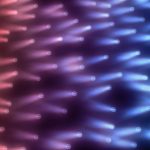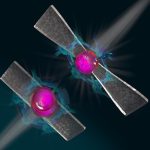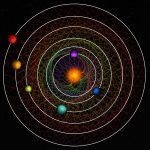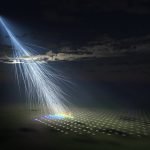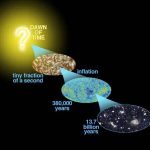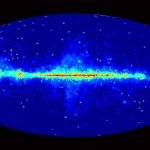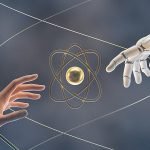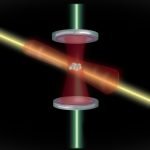Scientists reveal age-old law still applies to quantum superconductor
In the fascinating world of quantum materials, scientists have uncovered a surprising truth: a 170-year-old law about electricity and heat in metals still holds...
Scientists find new way to stretch diamond for better quantum bits
Researchers are making a quantum leap in the development of quantum networks.
Their latest breakthrough, published in Physical Review X, involves using stretched diamond films...
A planetary system with six sub-Neptune locked in perfect resonance
A team of researchers led by University of Chicago astronomer Rafael Luque analyzed data acquired by both NASA’s Transiting Exoplanet Survey Satellite (TESS) and...
Scientists detect the second-highest energy cosmic ray
In a groundbreaking discovery that has left astrophysicists both amazed and puzzled, the Telescope Array experiment has detected the second-highest-energy cosmic ray ever observed.
This...
Scientists discover ‘magic switch’ metal for future quantum devices
In a remarkable scientific advancement, researchers at the University of Bristol have uncovered a unique phenomenon in a special metal known as purple bronze.
This...
Scientists create ultra-precise scandium atomic clock, marking a new era in timekeeping
In a groundbreaking development that could revolutionize how we measure time, an international group of researchers has made a huge step forward in creating...
The echoes from inflation could still be shaking the cosmos today
In the very early universe, physics was weird.
A process known as “inflation,” where best we understand the universe went from a single infinitesimal point...
How Einstein unlocked the quantum universe and created the photon
It started with a simple experiment that was all the rage in the early 20th century.
And as is usually the case, simple experiments often...
Scientists make leap in electron spin manipulation, revolutionizing future electronics
In the world of magnetic materials, tiny particles called electrons play a crucial role. Imagine these electrons as tiny spinning tops.
Their spin, a property...
How Einstein’s daydream of light created relativity
Einstein’s fascination with light, considered quirky at the time, would lead him down the path to a brand new theory of physics.
Living half a...

